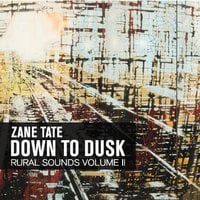Many musicians, especially independent musicians, hate genres and their associated sub genres. We argue that we don’t want to be locked into categories; we are unclassifiable in our art. We defy categorization.
When we meet people and they ask us what kind of music we make, we tell them we can’t be labeled with any particular style. In fact, we have such disdain for these labels, we’re offended when anyone attempts to categorize our music, even if that listener or critic likes what she hears. Why is that?
For some, the contempt for genres stems from an identity problem. The artist hasn’t found her unique voice yet, and thus can’t describe it. Most of us experience this – it’s normal, and part of discovering our identities. Nearly all of us go through it, and most of us grow out of it as we learn more about ourselves and the music we love.
Others may have insecurities about the genres or sub genres with which they’ve been associated. That is, a musician may not want to be tied too closely to a trendy sub genre that could fall out of favor by next year. This view is a little short-sighted since styles always come back around. However, more unfortunate is the musician’s concern over trend and stylishness. I think artists who worry about not being too trendy while still trying to maintain some sort of relevance water down their music for fear of over-committing to a particular sound. The result is moderately popular, and somewhat bland, music.
I’ve known some artists who dislike genre and sub-genre for an altogether different reason. They began their careers with very specific sounds, and became well known and very successful among particular audiences. Soon though they wanted to experiment with other styles. They made some creative and artistic music, and some of them were successful. They reached new listeners, and found new fans, which was great. Somewhere along the way though, they developed a pretentiousness. They became above genre, and critical of those who would commit to one.
I still don’t know where this one comes from. Maybe their old fans didn’t like their new sounds, and complained. So this pretense was a defense mechanism to being rejected by their old fans (despite having reached even more new fans). They didn’t want to be tied to the genres that made them successful, and developed creative frustration. Admittedly I’m speculating here because I haven’t sold nearly as many records as they have.
All of that being said, I think there are more positive approaches to genre, and three of them stand out to me.
Perfect a very specific sub-genre, finding your niche. If you’re an independent musician you’ve read about this approach plenty of times. Derek Sivers explained it best: “Have the confidence to find your niche, define who you are, then declare it again and again and again and again.” The point here is to own your sound, and embrace it completely.
Let a genre be your painting, and sub-genres your colors. For example, I make electronic music, but I use a different palette or sub-genre for each song. Sometimes it’s downtempo; sometimes it’s deep house; sometimes it’s drum and bass. This allows me some creativity, but doesn’t confuse my audience. I can’t tell you this approach is financially successful; it’s just my personal favorite as an artist.
Shape and transform an entire genre. I think this hardest goal to achieve. Dilla did it for hip hop; Monk did it for jazz; Hendrix did it for rock. If you’re doing this all I can is God bless you. Close your browser, and go make more music.
Actually that would be my advice, for whatever it’s worth, to any musician reading this now. If you spend too much time trying to avoid classification, you’ll actually be focusing more on genre than creating art, which probably isn’t your goal. On the other hand, if listeners or critics are labelling you then they’re listening to you. Let them! Now go and put something new in their ears. Do what you do best, focusing on your strengths, and guided by your passions. Stay positive, and let someone else worry about pigeonholing.

